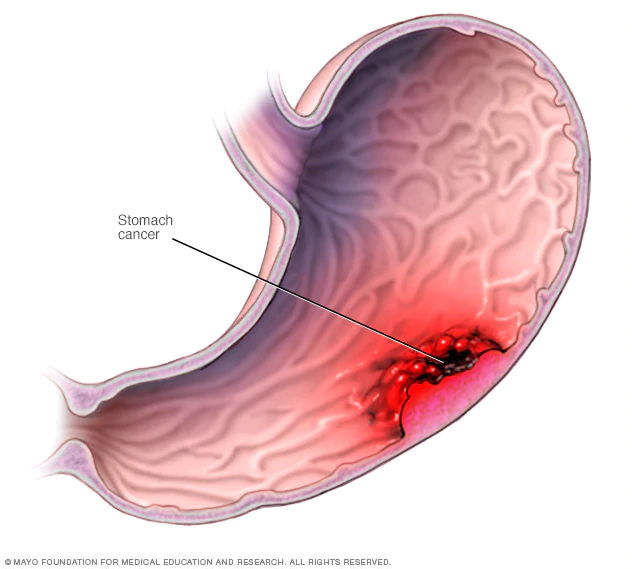Stomach Cancer Treatment in Bulgaria
Search and Compare the Best Clinics and Doctors at the Lowest Prices for Stomach Cancer Treatment in Bulgaria

Find the best clinics for Stomach Cancer Treatment in Bulgaria
No clinics available
Ukraine offers the best prices Worldwide
Price: $ 2,487

- Home
- Bulgaria
WHY US?
At Medijump, we're making medical easy. You can search, compare, discuss, and book your medical all in one place. We open the door to the best medical providers worldwide, saving you time and energy along the way, and it's all for FREE, no hidden fees, and no price markups guaranteed. So what are you waiting for?

Free

Best Price

Widest Selection

Risk-Free
What you need to know about Stomach Cancer Treatment in Bulgaria

If you have been diagnosed with stomach cancer, your doctor will discuss your treatment options with you. Your treatment options depend on several factors, including your overall health, the stage of your cancer, your age, and your personal preference. Stomach cancer may be treated with surgery, chemotherapy, radiation therapy, targeted therapy, or immunotherapy.
What does a Stomach Cancer Treatment Procedure Involve?
Surgery for stomach cancer is performed to remove all of the stomach cancer and some of the surrounding healthy tissue, your doctor may remove early-stage tumors from the lining of your stomach, remove a portion of your stomach (subtotal gastrectomy), remove your entire stomach (total gastrectomy), and remove lymph nodes to look for cancer. All of these surgeries are performed under general anesthetic. With chemotherapy, a drug is used to kill cancer cells, while with radiation therapy, high-powered energy beams are used to kill cancer. Your doctor may also recommend targeted therapy or immunotherapy, which uses targeted drugs or your own immune system to fight cancer.
How Long Should I Stay in Bulgaria for a Stomach Cancer Treatment Procedure?
After surgery, you will need to stay in the hospital for three to eight days and stay in Bulgaria for seven to fourteen additional days after you are discharged. If you undergo immunotherapy, chemotherapy, radiation therapy, or targeted therapy, your length of stay depends on how many cycles are needed for your specific case.
What's the Recovery Time for Stomach Cancer Treatment Procedures in Bulgaria?
The total recovery time until you can return to your normal routine may take several months, but you should be able to return to work within 4-6 weeks. If you only have therapy, you should be able to return to most of your activities when you do not experience any symptoms that interfere with your ability to perform your duties.
What sort of Aftercare is Required for Stomach Cancer Treatment Procedures in Bulgaria?
You need to adjust to a new diet after the surgery so make sure to talk to a dietitian about what to eat. Regular exercise is really important to keep your body healthy, you can start walking as soon as you can. Make sure to schedule follow-up checkups with your doctor to monitor your condition and you may do this with your local doctor at home or your doctor in Bulgaria.
What's the Success Rate of Stomach Cancer Treatment Procedures in Bulgaria?
Treatment for stomach cancer is known to be effective, but the success rate varies depending on how early the treatment is performed as well as the stage of cancer. The side effects and risks of stomach cancer treatment, which include infection, bleeding, damage to other organs, problems with anesthetic, hair loss, and fatigue.
Are there Alternatives to Stomach Cancer Treatment Procedures in Bulgaria?
If you prefer not to undergo treatment or too frail for any type of treatment, you should consult with your doctor and cancer team on the best alternative for you. In some cases, surgery to relieve only the signs and symptoms is recommended.
What Should You Expect Before and After the Procedure
Stomach cancer causes symptoms such as heartburn, nausea, pain, vomiting, and fatigue that may interfere with your daily life. It is also dangerous and it can spread to other organs. After the surgery, you should no longer experience any symptoms and you can return to your normal life.
Whilst the information presented here has been accurately sourced and verified by a medical professional for its accuracy, it is still advised to consult with your doctor before pursuing a medical treatment at one of the listed medical providers
No Time?
Tell us what you're looking for and we'll reachout to the top clinics all at once
Enquire Now

Popular Procedures in Bulgaria
Prices Start From $1,314

Prices Start From $512

Recommended Medical Centers in Bulgaria for procedures similar to Stomach Cancer Treatment

- Interpreter services
- Translation service
- Religious facilities
- Medical records transfer
- Medical travel insurance
- Health insurance coordination
- TV in the room
- Safe in the room
- Phone in the room
- Private rooms for patients available

- Interpreter services
- Translation service
- Religious facilities
- Medical records transfer
- Medical travel insurance
- Health insurance coordination
- TV in the room
- Safe in the room
- Phone in the room
- Private rooms for patients available

- Interpreter services
- Translation service
- Religious facilities
- Medical records transfer
- Medical travel insurance
- Health insurance coordination
- TV in the room
- Safe in the room
- Phone in the room
- Private rooms for patients available

- Interpreter services
- Translation service
- Religious facilities
- Medical records transfer
- Medical travel insurance
- Health insurance coordination
- TV in the room
- Safe in the room
- Phone in the room
- Private rooms for patients available

- Interpreter services
- Translation service
- Religious facilities
- Medical records transfer
- Medical travel insurance
- Health insurance coordination
- TV in the room
- Safe in the room
- Phone in the room
- Private rooms for patients available

- Interpreter services
- Translation service
- Religious facilities
- Medical records transfer
- Medical travel insurance
- Health insurance coordination
- TV in the room
- Safe in the room
- Phone in the room
- Private rooms for patients available

- Interpreter services
- Translation service
- Religious facilities
- Medical records transfer
- Medical travel insurance
- Health insurance coordination
- TV in the room
- Safe in the room
- Phone in the room
- Private rooms for patients available

- Interpreter services
- Translation service
- Religious facilities
- Medical records transfer
- Medical travel insurance
- Health insurance coordination
- TV in the room
- Safe in the room
- Phone in the room
- Private rooms for patients available

- Interpreter services
- Translation service
- Religious facilities
- Medical records transfer
- Medical travel insurance
- Health insurance coordination
- TV in the room
- Safe in the room
- Phone in the room
- Private rooms for patients available

- Interpreter services
- Translation service
- Religious facilities
- Medical records transfer
- Medical travel insurance
- Health insurance coordination
- TV in the room
- Safe in the room
- Phone in the room
- Private rooms for patients available
Stomach Cancer Treatment in and around Bulgaria
Introduction
Bulgaria has plenty to offer and tourists are going to be very impressed with the country’s mountainous landscapes, beautiful Black Sea beaches, fascinating history, friendly locals, lively nightlife, and affordability. Although the country’s holiday tourism is very much on the radar, it is also actually quite popular with medical tourists, due to its modern medical centers, highly trained medical professionals, state-of-the-art equipment, affordable healthcare, and mineral baths, thousands of medical tourists visit this country each year. Most of the medical tourists come for dental treatment, orthopedic surgery, elective surgery, neurosurgery, as well as health screening.
Popular Cities and Regions in Bulgaria
Bulgaria’s laid-back capital city, Sofia, is truly a must-visit. It is full of museums, Ottoman mosques, communist architecture, chic galleries, Eastern Orthodox churches, amazing restaurants, and upbeat clubs. One of the most popular landmarks in the country is the Aleksander Nevski Cathedral, which is an awe-inspiring church built between 1882 and 1912 to honor 200,000 Russian soldiers who died fighting for the independence of Bulgaria during the Russo-Turkish war. If you want to relax on beautiful beaches visit Varna, which is a major tourist destination during the summer. The second-largest, city in Bulgaria is Plovdiv and it is one of the oldest continuously inhabited cities in Europe. Tourists are attracted by the Roman Amphitheatre, Archeological Museum, and Tsar Simeon Central Garden.
Transport in Bulgaria
Most international tourists will arrive at Sofia Airport, which serves flights to most numerous major cities in Europe and the Middle East. There are several budget airlines that operate flights from this airport, including Ryanair and Wizz Air. Domestic flights are available, but they tend to be expensive. Therefore, to travel from one city to another, trains and buses are the best option. Buses and trains are punctual and affordable. However, if you are in a hurry, you should avoid trains as they can be a little slow. To travel around big cities, taxis are widely available and are really cheap. Just make sure you choose a licensed taxi to avoid being overcharged.
Visas in Bulgaria
While Bulgaria is not yet a part of the Schengen Area, it has a visa policy that is based on the Schengen system. Therefore, holders of Schengen Visa are allowed to enter the country. Additionally, citizens of 62 countries, including the US, Australia, and the UAE, can stay in the country for up to 90 days without a visa.
Weather in Bulgaria
From June to August, Bulgaria experiences summer. The weather can get a bit hot and humid, with an average temperature of 19°C to 21°C. July is the wettest month in the country. Winter, from December to February, is usually freezing. Autumn and Spring bring pleasant weather.
Additional Info
- Local Currency: The official currency is the Bulgarian Lev (BGN). 1 USD will get you approx. 1.8 BGN.
- Money & Payments: You can find ATMs in every city in the country. Credit cards are accepted in bigger restaurants and hotels. Tipping is sometimes expected.
- Local Language: Bulgarian is the official language in Bulgaria. Turkish and Roma are spoken by a minority of people. English is becoming more and more common in the country, but it is not widely spoken.
- Local Culture and Religion: Christianity dominates the population of Bulgaria, followed by Islam and Judaism.
- Public holidays: Bulgaria celebrates several historical and religious holidays, such as Orthodox Good Friday, Orthodox Easter Day, Independence Day, Culture and Literacy Day, Christmas Day, and Liberation Day.
Popular Searches
- Plastic Surgery in Thailand
- Dental Implants in Thailand
- Hair Transplant in Thailand
- Breast Augmentation Thailand
- Gastric Sleeve in Thailand
- Gender Reassignment Surgery in Thailand
- Laser Hair Removal in Bangkok
- Botox in Bangkok
- Dermatology in Bangkok
- Breast Augmentation in Bangkok
- Coolsculpting in Bangkok
- Veneers in Turkey
- Hair Transplant in Turkey
- Rhinoplasty in Turkey
- Stem Cell Therapy in Mexico
- Rhinoplasty in Mexico
- Liposuction in Mexico
- Coolsculpting in Tijuana
- Rhinoplasty in Korea
- Scar Removal in Korea
- Gastric Sleeve in Turkey
- Bone Marrow Transplant in India
- Invisalign in Malaysia
- Plastic Surgery in the Dominican Republic
- Tummy Tuck in the Dominican Republic
- Plastic and Cosmetic Surgery in Poland
- Rhinoplasty in Poland
- Hair Implant in Poland
- Dental Implants in Poland
- IVF in Turkey